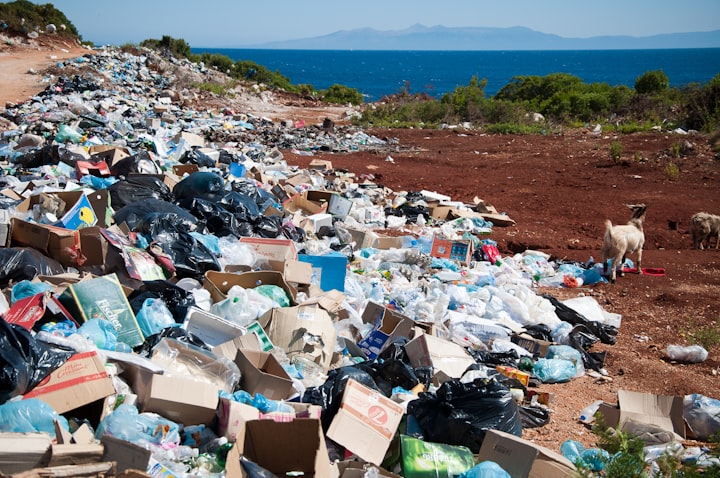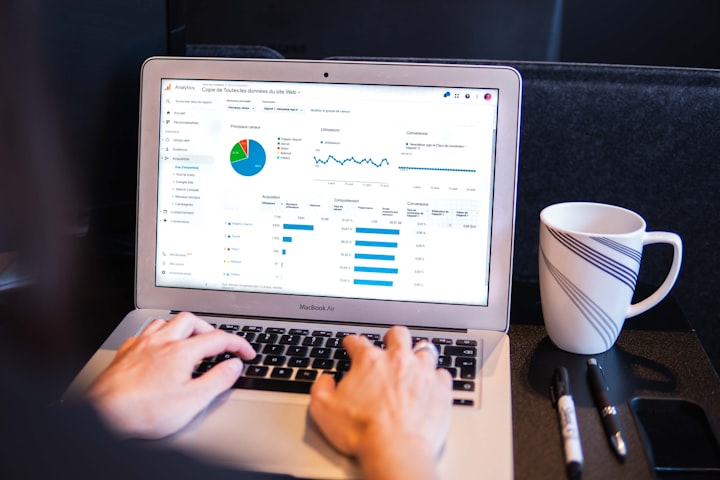NIGERIAN WOMEN LEAD IN RECYCLING
NIGERIAN WOMEN RECYCLE PLASTICS

For quite a long time, Maryam Lawani was truly tormented when it came down. She lived in Lagos, Nigeria's commercial capital, in the Oshodi Isolo area, where canals frequently overflow into the streets when it rains.
Furthermore, she was constantly struck overwhelmingly of plastic waste in the city after the downpours retreated and what this thus meant for portability or even made the streets fall apart. After even a little downpour in Lagos, the roads get sloppy and potholes overflowing by the side with broken plastics, gin sachets, unadulterated water nylons, utilized diapers and different things.
"I felt areas of strength for a to forestall environment emergencies as a reaction to an individual trouble spot," she told Al Jazeera. So she started to investigate the repetitive issue and afterward found that plastic contamination was a worldwide issue.
Overall, the world produces 430 million tons of plastic consistently; coverings for chocolate bars, bundles and plastic utensils. What's more, there are ramifications; Over 2,000 garbage trucks' worth of plastic are dumped into water bodies each day. Thus, plastic contamination is set to significantly increase by 2060 on the off chance that no move is initiated.
UN reports additionally say that Nigeria creates around 2.5 million metric lots of plastic waste every year. Over 130,000 tonnes of plastic end up in water bodies, placing the nation among the top 20 countries in the world for contributing to marine debris.
And keeping in mind that Nigeria has a few unloading locales for squander, those in the ecological area like Olumide Idowu, leader chief for Global Environmental Change Drive, say there is no precise information on their number or ability to adequately deal with enormous volumes of waste.
So squander has apparently caused hindered seepages and contamination, even as environment shocks like floods hit pieces of sub-Saharan Africa. This is most clear in Lagos, the nation's most populated city, with an expected 24 million individuals.
Contrasted with other emerging nations like Kenya, Rwanda, Uganda and Tanzania, which have restricted single-use plastics or are bit by bit killing them, Nigeria hasn't done a lot to battle plastic contamination, specialists say.
In 2020, the Service of Climate sent off the Nigeria Roundabout Economy Strategy to assist with progressing the country to a roundabout economy and advance practical waste administration. Be that as it may, Idowu says appropriate waste assortment and reusing offices are as yet required for Nigeria to successfully handle plastic contamination.
"Nigeria may likewise have to fortify existing guidelines or acquaint new ones with address plastic contamination," he says, adding that the country's enormous populace could likewise be a test in upholding them. '' In any case, financial requirements and absence of elective bundling choices might frustrate the progress away from single-use plastics."
"As additional people, organizations, and the public authority perceive the benefit of upcycling, all things considered, the area will develop and add to a more reasonable and roundabout economy in Nigeria," Idowu says.
Environment Lead's Oladosu says there is a need to affect however many individuals as could reasonably be expected in the development for a cleaner, greener Nigeria.
"We want to cause individuals to comprehend that environmental change is genuine, and it will influence everybody paying little heed to where they reside, Ajegunle or Lekki," she said. " We can all vibe the intensity of the sun, the effect of flooding, and so on. There are various points to alleviating environmental change and reusing is only one. Another is dependable utilization. There is a requirement for everybody to be environment and naturally cognizant."
During her exploration, Lawani found she could reuse plastics to assist with tidying up the local wreck. So in 2015, she established Greenhill Reusing which currently recuperates a normal of 100-200 tons of waste month to month, she says.
Her business likewise gives a method for supplemental pay for individuals around her, by paying them around 100-150 naira ($0.1265) for each kilogram of waste gathered.
"We empower and sharpen individuals not to whip squander but rather to sack them perfectly in their homes," she told Al Jazeera. " We pick up from their homes and doorsteps, not dump sites.
"Squander is a cash to resolve different issues around destitution, joblessness and the climate. Lawani continued, "People can exchange waste for profitable things like school fees, clothes, and even food."
Like Lawani's Greenhill Reusing, a few different ladies drove upcycling and reusing organizations have jumped up in Africa's biggest economy, notwithstanding the notable Wecyclers social venture.
In beach front Lagos, RESWAYE (Reusing Plan for Ladies and Youth Strengthening) works in networks with ladies and little kids who are prepared to go into schools and bequests to recover plastics. Their assortments go to an arranging center point and from that point to upscalers.
Doyinsola Ogunye, organizer behind RESWAYE told Al Jazeera that it has arrived at 4000 ladies in 41 waterfront networks in Lagos, while additionally giving individual cleanliness units to them and giving grants to youngsters.
Additionally, there is the non-profit Foundation for a Better Nigeria (FABE), which Temitope Okunnu established in 2006 to educate students about climate change. It works across three states.
"We visit essential, auxiliary schools and colleges to sharpen small kids about environment issues," she said. " Social change is as yet a major issue in this piece of the country which is the reason we are centered around small kids."
Through a drive called EcoSchoolsNg, it shows understudies abilities like supportable waste administration - by reusing, upcycling or treating the soil - and practical planting.
FABE says it advances plastic upscaling on the grounds that as per Okunnu, "plastic is cash yet a couple of individuals know this", she told Al Jazeera.
The rising mindfulness about reusing plastic into usable items can likewise be perfect for keeping youth connected with, says Adenike Titilope Oladosu, organizer behind ILead Environment, an environment equity backing.
Notwithstanding crafted by these ladies and various non-benefits to teach Nigerians on the unfavorable impacts of environmental change, obliviousness is as yet inescapable.
Travelers in moving vehicles still nonchalantly hurl sachets and jugs onto the roads very much like others clear family squander into trenches.
This further demonstrates, in the opinion of Lawani and Okunnu, the necessity of instilling environmental awareness in Nigerians of all socioeconomic classes at an early age.
"Uncovered and illuminated small kids are very much aware yet less favored youngsters whose worry is the means by which to get the following dinner may not be worried about this so we really want to guide our focus toward them, sharpen individuals, assist with peopling track down a connection," Lawani said. " Individuals can undoubtedly connect with hindered wastes so show individuals at their level. Help them see how these connections and links affect them as well.





Comments
There are no comments for this story
Be the first to respond and start the conversation.